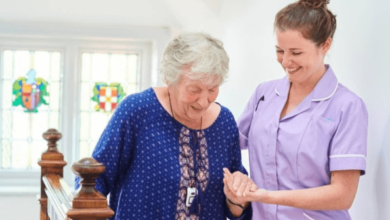Couples Recovery Rules That Work

Recovery is not a home makeover montage where the paint dries neatly before dinner. It is messier, slower, and—on the good days—quietly heroic. What actually helps most couples is not a grand speech but a handful of rules you can live with when you are tired, triggered, or staring at each other across the kitchen island wondering, “Are we okay?”
Start with one day promises
Say it out loud, once a day, same time. I will not use today. The partner responds with something simple, not a courtroom closing argument—got your back, I am here, text me at noon. It sounds small because it is small. And still, stacked day after day, it feels like laying bricks. Missed one? Do not spiral. Pick up the next brick.
See also: Enhancing Your Home: The Ultimate Guide to Patios in Brisbane
Keep substance talk in safe spaces
Every couple has a witching hour where good intentions go to ash. Late at night. In the car. After a tough shift. Decide together that the heavy stuff—fears, suspicions, old wounds—happens in planned check-ins or with a therapist in the room. Structure is not romantic, but it is shockingly kind. It keeps hard conversations in a container so they do not leak everywhere.
Make recovery visible at home
Progress does not count if no one sees it. Put it where you cannot miss it: a small wall calendar with meeting days, meds taken as prescribed, and yes, the wins that seem too obvious to write down. The human brain notices what is tracked. Also, it is allowed to feel good noticing it. That is not bragging; it is fuel.
Choose a shared language for repairs
You need phrases that interrupt the spiral without slamming the door. Try I need a pause back in ten or I am over my limit can we reset at seven. But here is the catch: always come back when you said you would. Repairs work because they lower adrenaline and keep the bridge intact. If you ghost the return, the bridge creaks next time.
Replace suspicion with verification
Let’s be honest—addiction taught everyone to doubt. So replace guessing with agreements: receipts for cash during early recovery, location sharing in high-risk windows, a quick photo outside the meeting before phones go off. Review the plan weekly when it is calm. It is not surveillance; it is scaffolding. Trust grows faster when it has data to stand on.
Build a two person relapse plan
Write it down before you need it. Early warning signs you have seen before: skipping meals, ghosting friends, doom scrolling at 2 a.m., sudden cash withdrawals. Next to each sign, put actions for both of you: call the sponsor, hand over debit cards for seventy-two hours, add an extra meeting, text the therapist, sleep at the safe friend’s place if anger spikes. Scripts beat panic. Every time.
Treat mental health as core recovery work
Cravings often wear costumes—anxiety, low mood, nightmares, bone-deep exhaustion. If those are showing up, they deserve the same clarity you give to sobriety: screening, treatment, adjustments if meds cause side effects, and honest check-ins about sleep. I know it is tempting to say we can white-knuckle this. But no, you should not. White knuckles let go.
Make caring behaviors routine
Recovery can turn a relationship into a checklist. Fight that by installing small, dependable moments of warmth. Morning coffee at the table, a midday “thinking of you,” one nightly appreciation (even on the grumpy days). It feels corny until you notice the tone of your home changing. Positives dilute the residue of old arguments. They make hard talks survivable. If you want ideas for tiny rituals, browse some helpful information to get started.
Use community to hold you up
Pick support you both can live with—12‑step, SMART, Refuge/Dharma, faith community, a peer group—and braid it into the week. Community does three things couples cannot do alone: it normalizes struggle, lends no‑nonsense skills, and keeps you honest without shame. If you need structured help from a licensed team near Atlanta, you can see services for detox, outpatient options, and dual diagnosis care that align with these recovery rules.
Know when together is not the next step
If there is active violence, untreated withdrawal, or the house feels like walking on fireworks, press pause on joint work and stabilize safely first. I wish this were not sometimes true, but it is. Couples recovery means choosing the level of care that preserves life and dignity—not forcing closeness while the floor burns.
Keep score the healthy way
Count what actually matters over time: fewer blowups about substance use, steadier moods, completed recovery activities, more ordinary laughter (the best metric and I will die on this hill). When you spot something that works—your Sunday planning walk, that five-minute debrief after meetings—promote it from “nice to have” to “house rule.”
Let rules evolve as you heal
What is essential in month one can feel like a cast on a healed arm by month twelve. Review quarterly. Retire what is no longer needed. Add guardrails for new stressors like a job change, a holiday, a funeral. Flexibility is not permissiveness; it is maintenance for a living system.
A tiny detour while we are here
During a rainy Tuesday last month, I watched a couple argue about dishes with the intensity of a playoff game. And then they caught themselves, used their pause phrase, and came back at seven with snacks. The dishes were still annoying. The relationship felt safer. That is the work: not making life pretty, making it livable.
One last, imperfect truth
These rules are not punishments. They are ways to make good choices easier and bad choices harder, especially when your nervous systems are loud. You will miss a check-in. You will snap and regret it. Reset, repair, return. Recovery is not a speech—it is a rhythm. On good days you both can hear the beat. On bad days, borrow it from the plan until it comes back.





